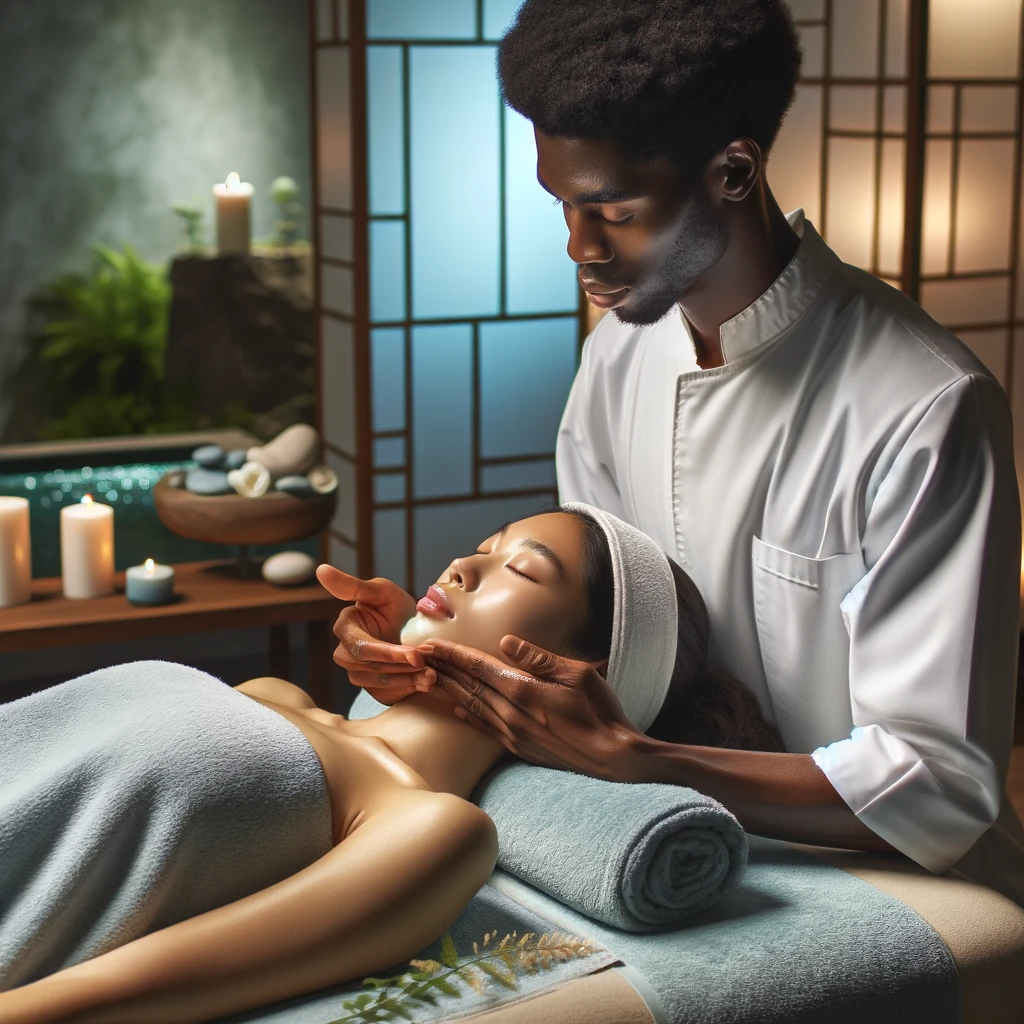Masseuse vs. Massage Therapist: Unraveling the Terms

For many, the world of massage brings relaxation, rejuvenation, and relief from daily stresses. However, when it comes to understanding the industry’s terminology, the waters can be a tad muddied. Delving into the specifics can help clients choose the right professional for their needs. This is why we’re here to demistify the difference between a masseuse vs. massage Therapist.
This guide breaks down the difference between a masseuse and a massage therapist, offering tips and insights into what to expect from each. As with any professional service, knowing what you’re getting into can greatly enhance your overall experience.
Table of Contents
Historical Context and Connotations
Masseuse: A French term, “masseuse” originally referred to a female massage provider. Its male counterpart, “masseur”, was used to denote a male in the same profession. These terms have roots in a time when the field of massage was less regulated. Over the years, the term “masseuse” has garnered some negative connotations, often associated with unlicensed or illicit services.
Massage Therapist: With the growth and professionalization of the industry, the term “massage therapist” was adopted. This gender-neutral term underscores the therapeutic aspect of the service and focuses on the health benefits offered. Today, many professionals prefer this title as it aligns more with their training, expertise, and the legitimacy of their practice.
Education and Training
Masseuse: Historically, a masseuse might not have undergone formal education. While there are undoubtedly skilled masseuses out there, there isn’t a universal standard for their training. Clients should always inquire about a masseuse’s experience and qualifications.
Massage Therapist: In most western countries, massage therapists are required to complete specific coursework. This includes anatomy, physiology, ethics, and hands-on practice. They must also pass a licensing exam and meet continuing education requirements. When you hire a licensed massage therapist, you’re benefiting from rigorous training and a commitment to the field’s ethics.
Tips for Choosing the Right Professional
Do Research: Before booking a session, do thorough research. Whether you’re seeking a masseuse or a massage therapist, understanding their background and expertise is crucial.
Ask for Recommendations: Personal references can be invaluable. Friends, family, or colleagues may have experiences to share, ensuring you make an informed choice.
Verify Credentials: Especially when seeking therapeutic benefits, ensure the professional has the necessary licenses and certifications. It protects both your health and your investment.
Communicate Your Needs: Every individual is unique. Discuss any health concerns, preferences, or goals upfront. This dialogue ensures the session is tailored to your requirements.
The Power of Informed Choice
Understanding the difference between a masseuse and a massage therapist empowers clients. With this knowledge, one can make an informed decision, ensuring their needs are met, and their well-being is prioritized. Both terms have their place in the wide world of massage, but distinguishing between them is key to optimizing your experience.
The Setting and Atmosphere
Masseuse: Traditionally, the setting for a masseuse can vary widely. It could range from luxurious spa environments to more informal settings. Some masseuses may even offer home visits. While many provide a serene and calming environment, it’s essential to clarify the atmosphere beforehand to align with your relaxation goals.
Massage Therapist: A massage therapist typically operates in a setting that emphasizes the therapeutic nature of their services. This might include a medical office, a dedicated massage clinic, or a wellness center. The ambiance usually emphasizes calm, with dim lighting, soft music, and a focus on creating a space conducive to healing and relaxation.
Pricing and Services

Masseuse: The cost associated with a masseuse can differ considerably, depending on their experience, location, and the length and type of service provided. Some might offer specialized techniques or add-ons, but it’s always recommended to discuss pricing upfront to avoid any surprises.
Massage Therapist: Since massage therapists often undergo more formalized training and certification, their rates might reflect their expertise and the setting in which they operate. Additionally, they may provide specialized therapeutic services targeting specific health concerns, ailments, or injuries. It’s advisable to review their service menu and pricing structure before booking.
Etiquette and Expectations
Respect Boundaries: Both professionals deserve respect. It’s crucial to understand and maintain the professional boundaries set, ensuring a comfortable experience for both parties.
Arrive Early: Especially for your first session, arriving a bit early can provide time to discuss any concerns, complete paperwork, and relax before the session begins.
Cleanliness Matters: Remember, personal hygiene is appreciated. A quick shower before your massage can make the experience more comfortable for everyone involved.
Feedback is Key: Don’t hesitate to communicate during the session. If the pressure is too much or too little or if you have a specific area of concern, voice it. Your feedback ensures you get the most out of the session.
Modalities and Techniques
Masseuse: Masseuses, depending on their experience and personal learning, might offer various techniques. These could include general Swedish massage, deep tissue, or even more culturally specific methods like Thai or Shiatsu massage. It’s essential to discuss your preferred modality beforehand to ensure they can accommodate.
Massage Therapist: With their formalized training, massage therapists often have a broader range of techniques at their disposal. Beyond the basics, they might offer sports massage, prenatal massage, myofascial release, or trigger point therapy. When booking, inquire about their specialties, especially if you have a particular modality in mind.
Benefits and Goals
Masseuse: Typically, clients seek masseuses for relaxation, stress relief, and general well-being. The experience might prioritize ambiance, aromatic oils, and a sense of holistic pampering. The results can lead to improved mood, better sleep, and a feeling of lightness.
Massage Therapist: While relaxation is still a significant benefit, therapeutic massage can target specific health concerns. This might include chronic pain, injury recovery, or posture issues. With their understanding of anatomy and physiology, massage therapists can design sessions around therapeutic goals, aiding in both immediate relief and long-term recovery.
Safety and Precautions
Do Health Screening: Before starting any massage session, it’s beneficial to discuss your medical history and any current health issues. This ensures a safe and tailored experience.
Know Your Comfort Zone: Be clear about your boundaries. Whether it’s the level of undress, areas to avoid, or pressure preferences, always voice your comfort level.
Hydrate: Drinking water post-massage helps to flush out toxins that get released from the muscles. It’s a simple yet effective step towards enhancing the benefits of your session.
Avoid Heavy Meals: Before your session, it’s recommended to avoid large meals. A lighter stomach can make the experience more comfortable and allows the body to focus on relaxation.
Aftercare and Maintenance
Post-Session Care: After your massage, take a moment to rest and acclimate. Some might experience light-headedness, so it’s essential to move slowly.
Frequency: The frequency of massages depends on individual goals and preferences. Discussing with the professional can provide guidance on maintaining benefits over time.
Stretching: Incorporate regular stretches into your daily routine. This can enhance the effects of the massage and prevent muscle tightness between sessions.
Feedback Loop: Always provide feedback after the session, helping the professional adjust techniques for future visits. This open dialogue ensures continual improvement and personalized care.
Final Thoughts
Massage, in all its forms, offers a wealth of benefits – from relaxation to pain relief. By distinguishing between a masseuse and a massage therapist, you’re better equipped to seek out the experience that aligns with your desires and needs. Whichever path you choose, remember to prioritize communication, respect, and personal comfort. After all, it’s your journey to relaxation and well-being.
Keep learning about the best massage tools available on the market. Check out our latest article: Acne Treatment with Light Therapy: Is It Worth Investing in It?
